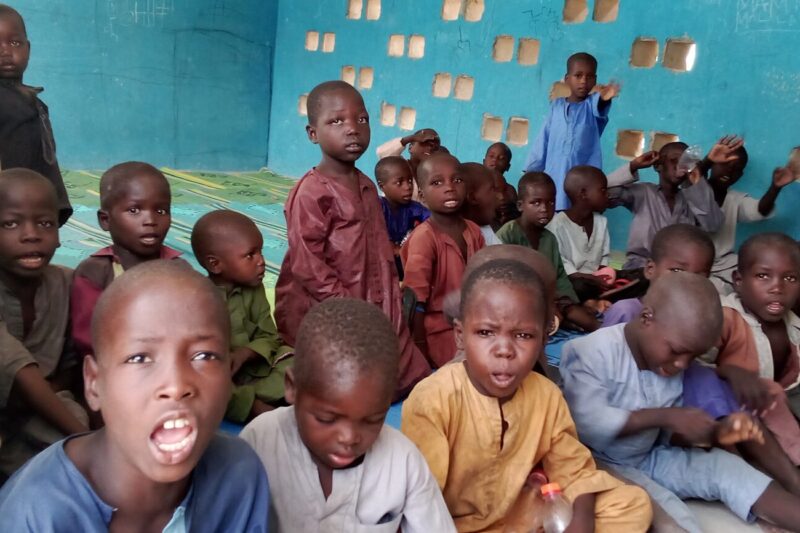To fight the world’s “deadliest killer – the mosquito”, the Nigerian government has been urged to declare a state of emergency on malaria.
The country’s death toll from the disease makes up nearly a third of the world’s 619,000 malaria deaths a year.
To mark World Mosquito Day on Sunday, August 20, Amobi Ogah, the chairman of the House of Representatives Committee on HIV/AIDS, Tuberculosis and Malaria, called on the federal government to declare a state of emergency on malaria, emphasising the grave threat the disease posed to the country’s citizenry.
Classified as a malaria-endemic country, the World Health Organisation said Nigeria – with 31.3% of global malaria-related deaths – topped the list of four African countries that accounted for just over half of all malaria deaths worldwide.
The theme of this year’s World Mosquito Day was “Fighting the World’s Deadliest Killer – the Mosquito” and, in a statement released on Sunday, Ogha urged the government to prioritise mosquito eradication by collaborating with stakeholders in the health sector, including non-governmental organisations, to address the pressing issue.
“Considering the threat malaria poses to humanity, every effort must be geared towards eradicating it.”
He called on all levels of government to intensify efforts to eliminate mosquitos from the country, emphasising the need for concerted action and said he was concerned that the government had not given sufficient attention to eradicating mosquitos, which directly affected citizens’ lives and wellbeing.
In Borno State in the northeast as many as 500 people are diagnosed with malaria every day during the rainy season from July to October.
To reduce the high number of cases, a four-day, door-to-door antimalarial drug campaign, organised by the health ministry, was launched throughout the state on Thursday, August 3. The long-term aim was to eliminate malaria in the state.
However, the campaign failed to target some of the most vulnerable inhabitants of the state – the male pupils at traditional Qur’anic schools, known as Tsangayas, a system of Islamic education that encourages people to send their children away and leave their parental responsibilities to the schools. The children, referred to as Almajirai, are mostly from poor homes and end up begging in the streets.
Abubakar Ali, a 15-year-old Almajira, attends the Gwange Qur’anic school in Maiduguri. He has spent the past week trying to care for his six-year-old brother, Mohammed, who is just beginning to recover from malaria.
The two boys are among 142 pupils at the school which, Abubakar said, lacked proper toilet and sanitation facilities.
“There is no proper accommodation, clean drinking water, food and healthcare. Most of us ended up at the school because our parents could not afford to care for us. We all come from small villages across Nigeria, sent by our parents to study the Qur’an.”
Abubakar said when Mohammed fell ill with malaria last week, he was left alone struggling to treat him. He said he did not have enough money to take his brother to hospital to get proper treatment and used the little money he had on food and drugs.
“It was very hard to see him suffering as the malaria got worse. I got no help from anyone. It is a miracle that he is now recovering from the disease.
“Our head teacher cannot afford to cater for all of us in this Tsangaya because there are too many of us.”
He told RNI that there were many other pupils at the school who had malaria but who also did not have anyone to care for them.
Mallam Hafizu, a teacher at the school, said: “We have never received any kind of help from the government. We desperately need drugs and mosquito nets for the children. We have more cases of malaria than anyone because of the lack of mosquito nets. It’s a big problem.
“Sometimes five to six children sleep under one net. Many don’t sleep under nets because there are just not enough. When our pupils fall sick, they have no access to food because they rely on begging to get something to eat and when they are so ill they cannot beg. And they don’t have access to healthcare. If a child’s illness worsens, we try to inform their parents or guardians. But often we cannot reach them because we don’t know where they are.”
Mala Waziri, the Borno State programme director for malaria, admitted that the door-to-door antimalarial drug campaign had not included Tsangaya pupils but he hastened to add that healthcare authorities had now drafted a plan to include them.
“The government is doing its best to deal with malaria but it is challenging. Often the health sector is not allocated enough funds.”
Waziri said the government had distributed the first batch of antimalarial drugs for children aged five and under. But he admitted that Tsangayas had been excluded from the campaign and said a plan had been drafted to include Almajirai children.
FALMATA MOHAMMED ALI








